United States Air Force commander General Kevin Schneider on regional tension
Senior US commander General Kevin Schneider says aggressive activities from the north are behind the strong military presence in Northern Australia and the wider region.
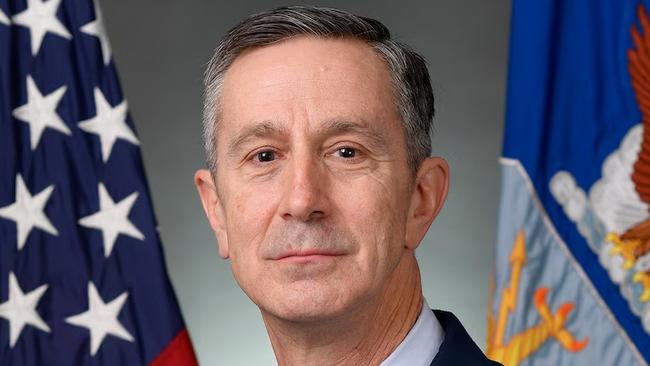
News
Don't miss out on the headlines from News. Followed categories will be added to My News.
A senior US military commander says the “heavy handed” activities of Beijing, Moscow and Pyongyang has forced like-minded nations across the globe to unite, maintaining large scale military activities across Northern Australia is sending a strong, collective message to the region’s troublemakers.
The comments come amid heightened military activity across the Northern Territory, where multinational exercises across air, land and maritime domains are being conducted.
In the skies, Exercise Pitch Black 2024 is the largest in its 43-year history, with more than 140 aircraft across 20 nations testing their air combat skills, air-to-air refuelling methods, and air reconnaissance practices.
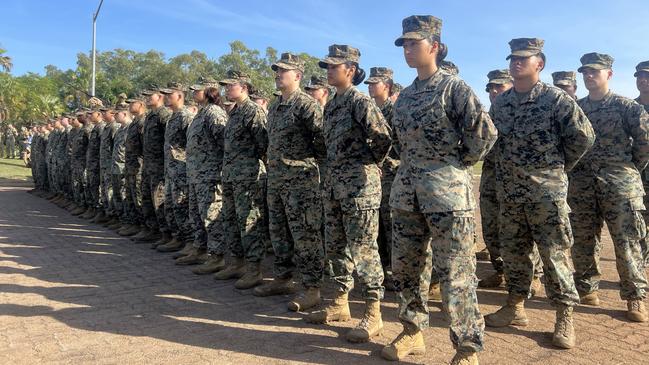
On the ground, Exercise Predators Run – an annually held land warfighting activity – has also delivered the largest instalment in its history, with thousands of troops from Australia, United Kingdom, United States and The Philippines using the width and breadth of the Top End to improve its ‘near-peer’ fighting ability.
Speaking to media at RAAF Base Darwin on Tuesday, United States Air Force commander General Kevin Schneider said the mammoth training exercises underway in Darwin and beyond were part of a broader effort to “build relationships” across the Indo-Pacific in the face of aggressive posturing from the north.
“(There are) like-minded partners who continue to see the security situation in the same light that we do, as governments in Beijing, Moscow and Pyongyang are heavy handed in their activities and conduct,” he said.
“Things that we would describe as illegal, aggressive and deceptive.”
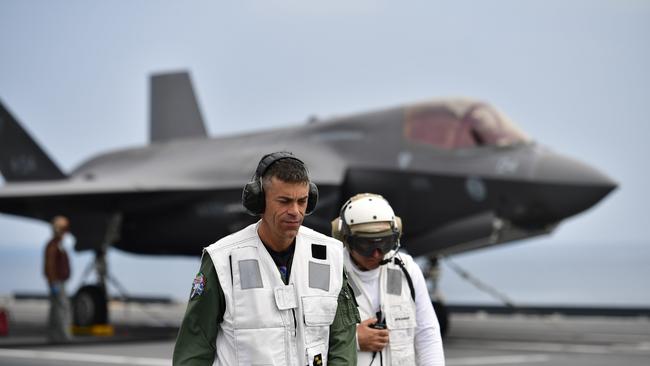
As well as Indo-Pacific members “feeling the pinch” of northern powers, General Schneider said the region’s situation had commanded the attention of European stakeholders, whose forces were also now training in the Top End.
“I’ve had the opportunity to interact with some of the European partners, whether it was Germany, Italy, France and Spain, who recognise that what goes on in places like Beijing, Moscow and Pyongyang – and the efforts that undermine peace and stability – affects Europe as well.”
Making their Pitch Black debuts this month was the Spanish Air and Space Force, the Italian Navy and the Italian Air Force, adding to the strong European presence of Germans, British and French.
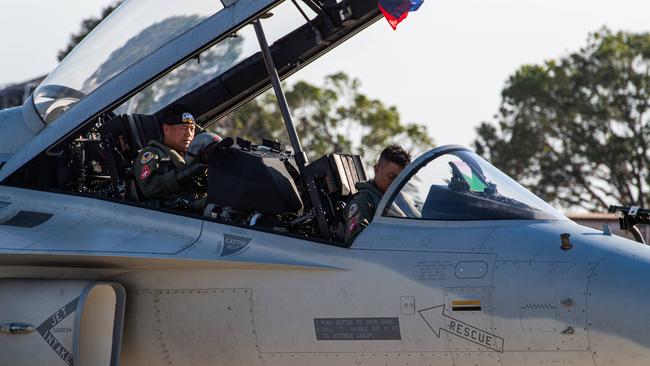
Despite significant differences in language, technology, tactics and procedure, General Schneider said he was impressed with how the 20 nations had integrated.
“We do not have to show up with fifth generation fighters to be a part of this,” he said.
“I applaud first time participant nations like the Philippines, who brought their FA-50s, and they are immediately integrating with their capability into the package and showing what they can do.”
While General Schneider hailed the West’s aeronautic advancements, he maintained threats from ground – such as surface-to-air missile defence – would pose a major challenge in a contested environment.
“For every move there’s a counter move, as we build capability among our Western forces, potential adversaries will look to exploit that and find a weakness and build something that’s faster, longer and more multispectral.”
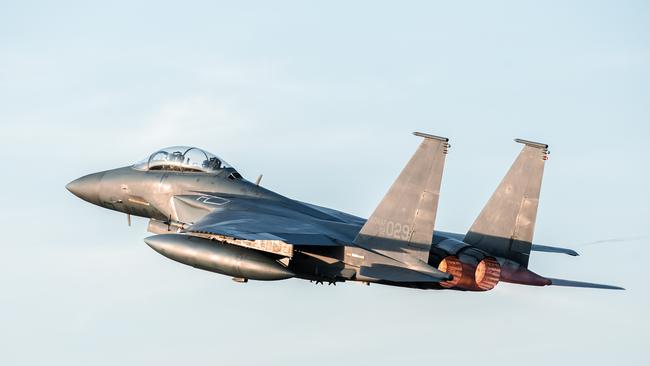
Since arriving in Australia, General Schneider has also turned his attention to military infrastructure, having visited facilities at both RAAF Base Tindal and RAAF Base Darwin.
General Schneider said he expected the US would work “hand-in-hand” with the Australian government in delivering improved military infrastructure, with the US Department of Defense having committed at least $760m to RAAF Base Darwin alone.
“I recognise this is Australia not the United States,” he said.
“Anything that gets executed must be done with co-ordination at the highest levels of both our governments, whether we’re responding to any crisis or contingency in the region.”
More Coverage
Originally published as United States Air Force commander General Kevin Schneider on regional tension





